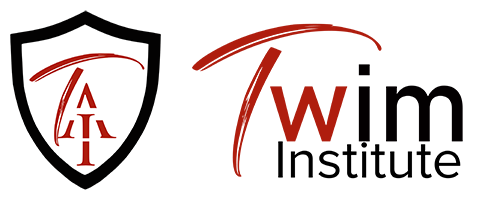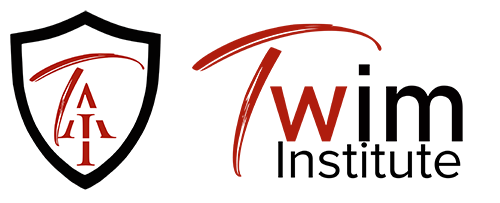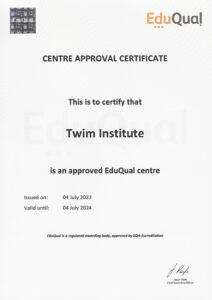
Introduction
BCS (British Computer Society) and IIBA (International Institute of Business Analysis) are two professional organizations that offer certification programs and resources for professionals working in the field of information technology and business analysis.
BCS is a UK-based professional body for those working in the field of computing and IT. It offers a range of certification programs for IT professionals, including the BCS Certified Business Analysis Practice (CBAP) and the BCS Foundation Certificate in Business Analysis.
IIBA is a global professional association for business analysts. It offers the Certified Business Analysis Professional (CBAP) certification, which is recognized as the premier certification for business analysts. IIBA also offers a range of resources, such as events, professional development opportunities, and networking opportunities, to help business analysts advance their careers.
There have been quite a lot of speculations by students as well as intending ones on which certification to go for: BCS or IIBA.
The truth is, both certifications are good but it depends on what your exact needs are. For instance, if you are looking to simply sit for just one examination, then, the IIBA is your sure bet because even though the BCS is very comprehensive, it is a much longer route when compared to the IIBA. The good news is that you don’t have to do all of them before you become a practitioner in Business Analysis.
How Well Recognized Are Both Certifications?
The truth is the BCS is well recognized in the UK and Europe, in general. However, if you have prospects of working in a North American country, then the IIBA might be a better option.
BCS for Business Analysts
For the BCS, the exams are more focused and the approach is quite different. They have a more comprehensive approach when compared to the IIBA, although the exams for IIBA are more specialized and can be combined to earn a Diploma or an Advanced Diploma.
Also, experience isn’t required until you get to the final stage. The Advanced International Diploma in Business Analysis requires 5 years of experience and one has to be trained before writing the exams. Upon successfully passing the exams, you earn the BCS Advanced International Diploma in Business Analysis.
The BCS is a very comprehensive but much longer route than the IIBA and you don’t have to do all of them before you become a Practitioner in Business Analysis.
In addition, when it comes to costs, the exam you write to gain a foundation certificate in Business Analysis for BCS is a bit cheaper when compared to the IIBA and your payment also includes a 1-year membership of the BCS. However, if you would like to proceed higher, especially if you are targeting the Advanced International Diploma, it would cost you close to 2000 pounds because you would be writing about 8-9 examinations.
Another advantage of having a BCS is that you do not need to recertify, it is for life as compared to the IIBA in which you would be expected to recertify every 3 years except for the ECBA.
To be honest, the BCS can be considered a winner when it comes to the added benefits involved as well. Some of these benefits include:
- Exams are mapped to the SFIA plus IT skills framework.
- Entry into the RitTech register after completion of the BCS International Diploma in Business Analysis.
- Eligibility for Chartered IT status after completion of the Advanced International Diploma in Business Analysis.
IIBA for Business Analysts
As stated earlier, I would advise you to go for the IIBA if your target is North America as it is considered a better option as compared to the BCS.
Also, for the IIBA, you can have a documented Business Analysis experience required except for the ECBA which is entry-level.
The truth is some people prefer the IIBA because it is a shorter route as compared to the BCS. You don’t have to do all of them before you become a Practitioner in Business Analysis.
When it comes to the cost of an ECBA exam, you would need more than 240 dollars which includes registering for membership. So, you can see it’s more expensive than the BCS. However, when compared to the BCS Diplomas, it is much cheaper because IIBA does not offer diplomas.
Recertification
The IIBA needs to be recertified every 3 years except for ECBA. So, this needs to be put into consideration. If you would like to go for a certification you can use for life, without having to recertify, then, IIBA isn’t the best option.
The BCS Approach to Business Analysis Examinations
The BCS (British Computer Society) is a professional body for IT practitioners in the United Kingdom. The BCS offers a range of professional certifications in business analysis, including the International Diploma in Business Analysis (IDBA) and the Certified Business Analysis Professional (CBAP) designation. These exams are designed to test the knowledge and skills of business analysts, including their ability to identify and analyze business needs, design and implement solutions, and communicate effectively with stakeholders.
To prepare for these exams, it is recommended that you study the BCS syllabus and complete relevant training courses. You may also want to review sample exam questions and practice using study guides and mock exams.
The IIBA Approach to Business Analysis Examinations
The International Institute of Business Analysis (IIBA) is a professional association for business analysts. One of how IIBA helps to professionalize the field of business analysis by offering a series of examinations that individuals can take to demonstrate their knowledge and skills in the field.
There are several different levels of examination offered by IIBA:
The Entry Certificate in Business Analysis (ECBA) is the first level of certification offered by IIBA. It is designed for individuals who are new to the field of business analysis or who are in the early stages of their careers. To be eligible to take the ECBA, individuals must have at least 900 hours of business analysis work experience or 21 hours of business analysis education.
The Certified Business Analysis Professional (CBAP) is the highest level of certification offered by IIBA. It is designed for experienced business analysts who have a deep understanding of the principles and practices of the field. To be eligible to take the CBAP, individuals must have a minimum of 7,500 hours of business analysis work experience and 35 hours of business analysis education.
In addition to the ECBA and CBAP, IIBA also offers several other certification levels, including the Certification of Competency in Business Analysis (CCBA) and the Agile Analysis Certification (AAC).

Conclusion
To sum it up, the Genesis of this week’s whole article boils down to the fact that it depends on your exact needs as an individual. Your exact needs would help to define the one to go for, all you need to do is weigh your options and go for what suits you the best. I wish you the best in all your endeavors.
For more information, you can simply WhatsApp or call +2349033279205 or email info@twiminstitute.com




